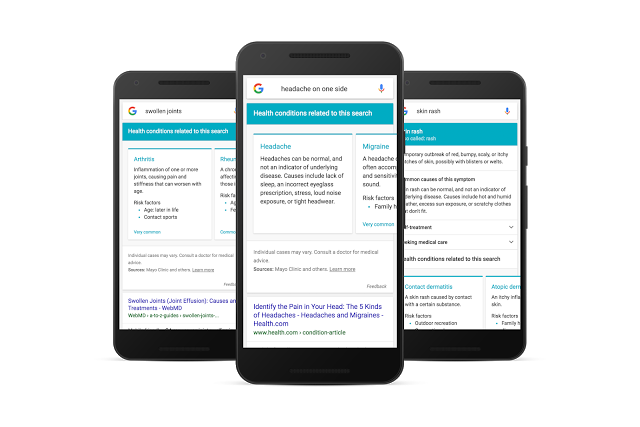Doctor Google will soon be able to (more reliably) diagnose what's wrong with you

Feeling unwell? Not sure whether you’re coming down with a cold or something much more serious? One of the worst things you can do is Google your symptoms, as there’s a good chance that after 10 minutes of browsing you’ll have read enough to convince yourself it’s not flu but rather the early stages of Ebola, and you’re actually going to DIE, HORRIBLY. Time to Google "writing a will…"
Despite this being a BAD IDEA, millions of people still Google their symptoms on a daily basis -- the search giant says it amounts to roughly 1 percent of all queries -- but there is some bright news on the horizon as in the very near future those worried individuals should start seeing some more reliable results.
Veronica Pinchin, Product Manager, Google says:
So starting in the coming days, when you ask Google about symptoms like "headache on one side", we’ll show you a list of related conditions ("headache", "migraine", "tension headache", "cluster headache", "sinusitis", and "common cold"). For individual symptoms like "headache", we’ll also give you an overview description along with information on self-treatment options and what might warrant a doctor’s visit. By doing this, our goal is to help you to navigate and explore health conditions related to your symptoms, and quickly get to the point where you can do more in-depth research on the web or talk to a health professional.
Google has worked with a team of medical doctors as well as experts at Harvard Medical School and Mayo Clinic to make sure the results match the queries as accurately as possible.
It doesn’t mean Googling your symptoms will present you with an accurate diagnosis, but it will deliver the most likely choices up front.
Google doesn’t want to be held responsible for any miss-diagnosis that may occur, of course, so is quick to stress that "symptom search (like all medical information on Google) is intended for informational purposes only, and you should always consult a doctor for medical advice".
The feature will roll out to mobile in the US first, and then expand to future territories, and languages, in due course.
Google is also asking for feedback on the results it provides, and plans to improve its responses accordingly.

Image Credit: pathdoc / Shutterstock
